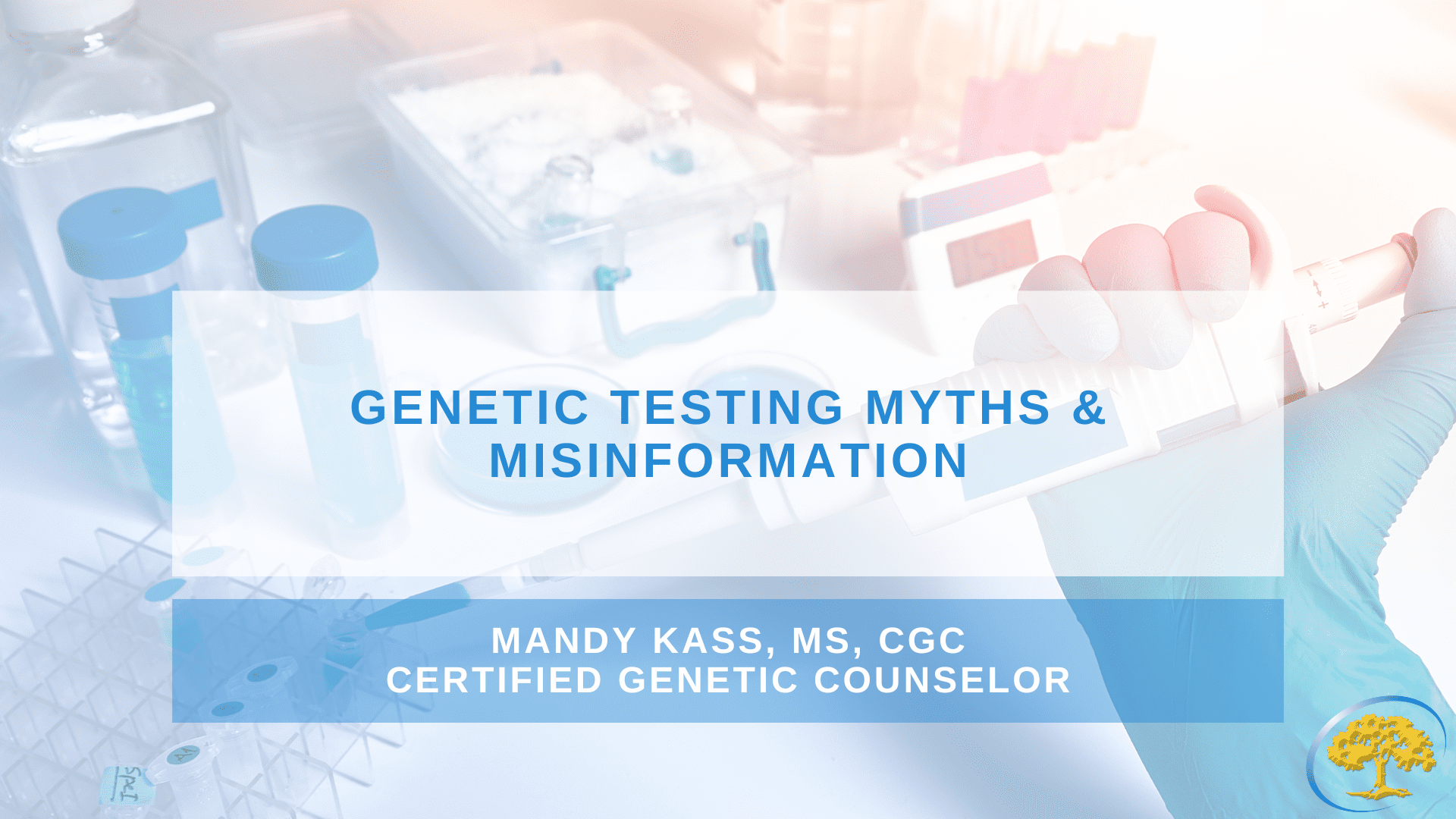
Posted 1 year ago
Genetic Testing Myths & Misinformation
Genetic testing can understandably result in a lot of questions. Unfortunately accessing accurate information about genetic testing is not always as simple as we’d like. Here are some common myths and misinformation about genetic testing along with facts that may help you feel better informed before pursuing your own genetic testing.
Myth: Only women can carry an inherited mutation for breast cancer.
False: Both men and women can carry an inherited mutation for breast cancer. For example, men and women all carry the BRCA1 and BRCA2 genes. These are genes that work in our bodies to protect us from breast, ovarian, prostate, pancreatic, and skin cancer. If a man inherits a mutated (non-working) copy of one of these genes from either his mother or father, it means he has an increased risk of developing male breast, prostate, pancreatic, and skin cancer. In addition, there may be a risk to his children if they also inherited the same gene mutation.
Myth: Genetic testing will tell me if I’m going to get cancer.
False: Genetic testing for hereditary cancer risk is not like looking at a crystal ball. It cannot determine if someone is guaranteed to get cancer. Instead, genetic testing can determine if someone was born with an inherited gene mutation that causes them to have a higher likelihood of developing certain cancers in their lifetime.
Myth: If you already have cancer, there is no point in doing genetic testing.
False: Genetic testing allows your providers to make informed decisions regarding appropriate treatment plans and surgical recommendations. It can also help your providers determine if you may be at risk for other cancers, in which we can implement personalized screening strategies.
Myth: If my genetic test result is negative, I’m not at risk for cancer.
False: Only about 10-15% of cancers are hereditary. This means that majority of cancers are not hereditary, and instead are considered sporadic. Sporadic cancers may be caused by environmental exposures, lifestyle factors, or normal aging. If your genetic testing is negative, it means you are unlikely to develop a hereditary form of cancer. However, you may still be at risk for a sporadic cancer. Age-appropriate cancer screening will still be recommended, and your providers can help determine if you may benefit from additional cancer screenings.
Myth: People who test positive for a genetic mutation could lose their health insurance.
False: There are laws in place that prevent genetic discrimination. Specifically, there is a law called the Genetic Information Nondiscrimination Act (GINA) that prevents someone’s health insurance from discriminating against them based on a positive genetic test result. This means health insurers cannot use genetic testing information to determine eligibility for coverage or rates.
Myth: Genetic testing is very expensive and not covered by insurance.
False: Historically, genetic testing was very expensive and often not covered by health insurance. Today, genetic testing is much more accessible and is often covered by insurance if certain criteria are met. Many labs also offer genetic testing for hereditary cancer risk for $250 for patients that do not have insurance coverage but are still interested in understanding any potential hereditary cancer risks.
If you have questions about genetic testing for hereditary cancer risk, or would like to speak with a genetic counselor, please talk to your Ironwood provider about a referral to Ironwood’s Genetic Services Department.
Mandy Kass, MS, CGC
Certified Genetic Counselor

The ultimate goal of cancer genetic counseling is to empower patients to use their personal risk information to better inform treatment and management decisions and to educate family members on their possible cancer risks.
Mandy obtained her Bachelor of Science degree in Psychology from Arizona State University in 2013. She then went on to pursue her Master’s Degree in Human Genetics from Sarah Lawrence College and graduated in 2016. Her training in genetic counseling included clinical rotations at several locations throughout New York City, including Columbia University Medical Center, Mount Sinai Beth Israel, and Bellevue Hospital.
Prior to pursuing her graduate degree, Mandy worked for the National Suicide Prevention Lifeline. She is also a member of the National Society of Genetic Counselors and of the Cancer Special Interest Group. Outside of work, Mandy enjoys exploring Arizona, traveling, and spending time with her family, friends, and two golden retrievers.
She is happy to be part of Ironwood Cancer & Research Centers and to manage a genetic counseling department based on individualized care, patient education, and supportive guidance.
